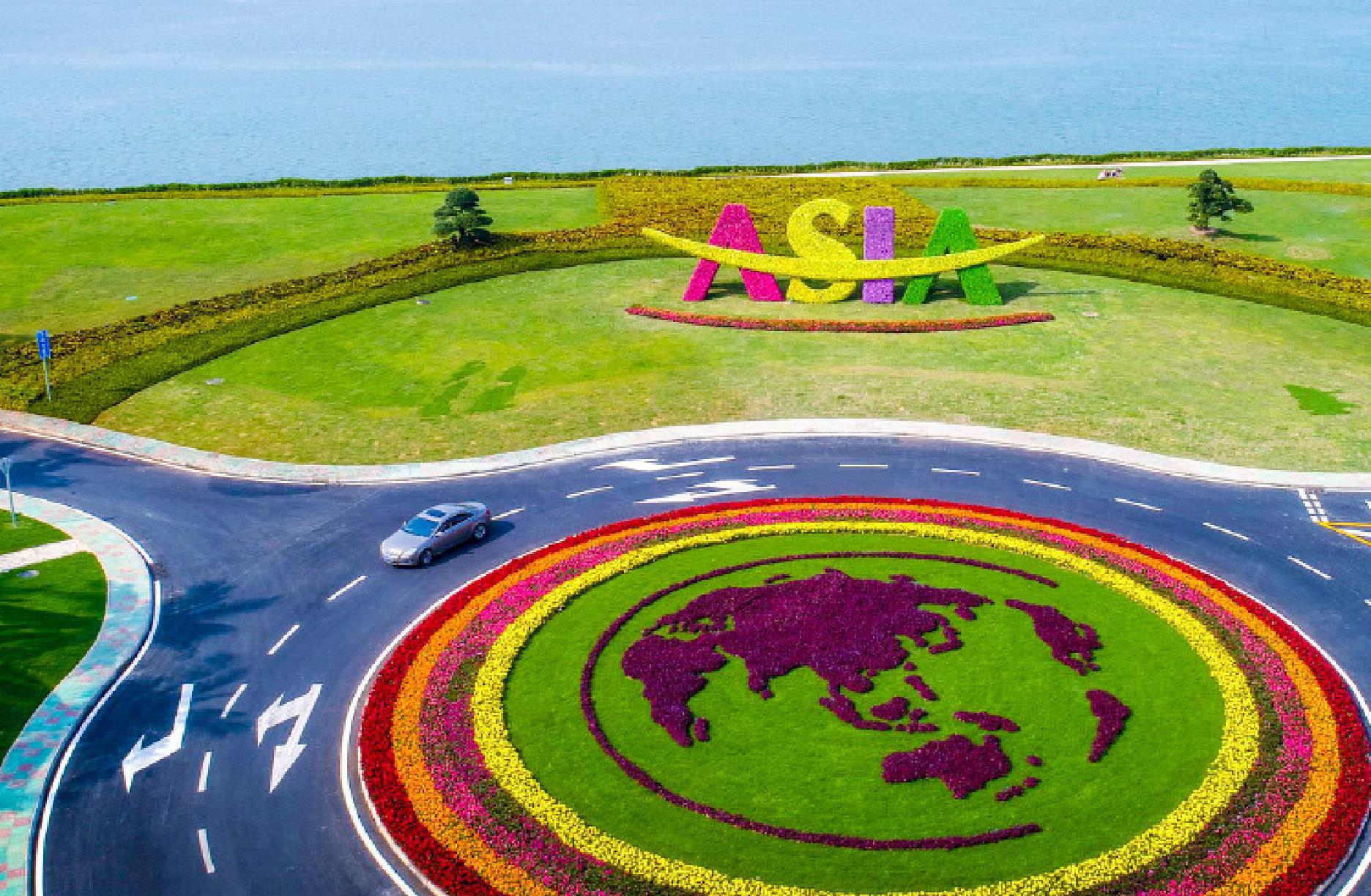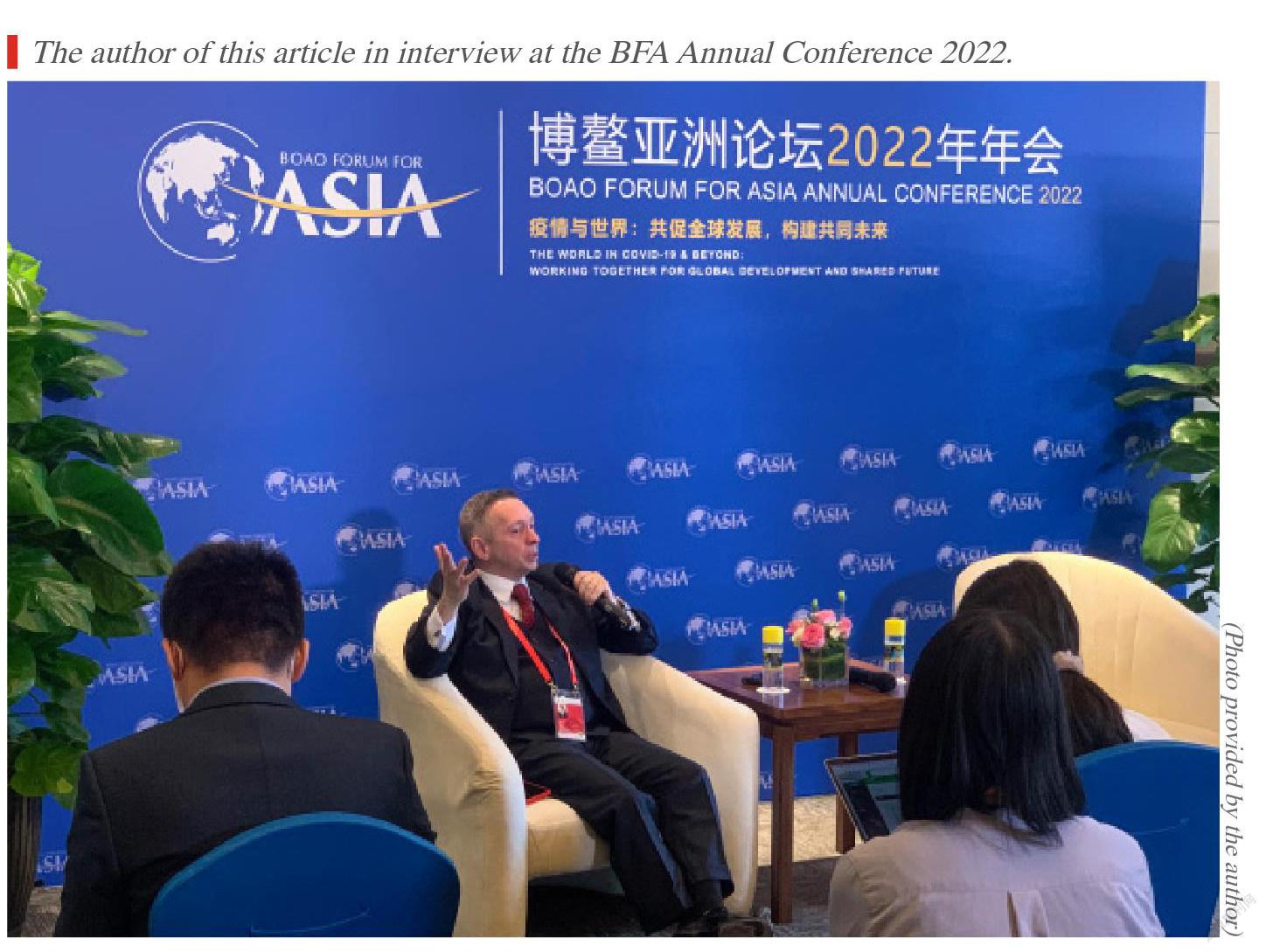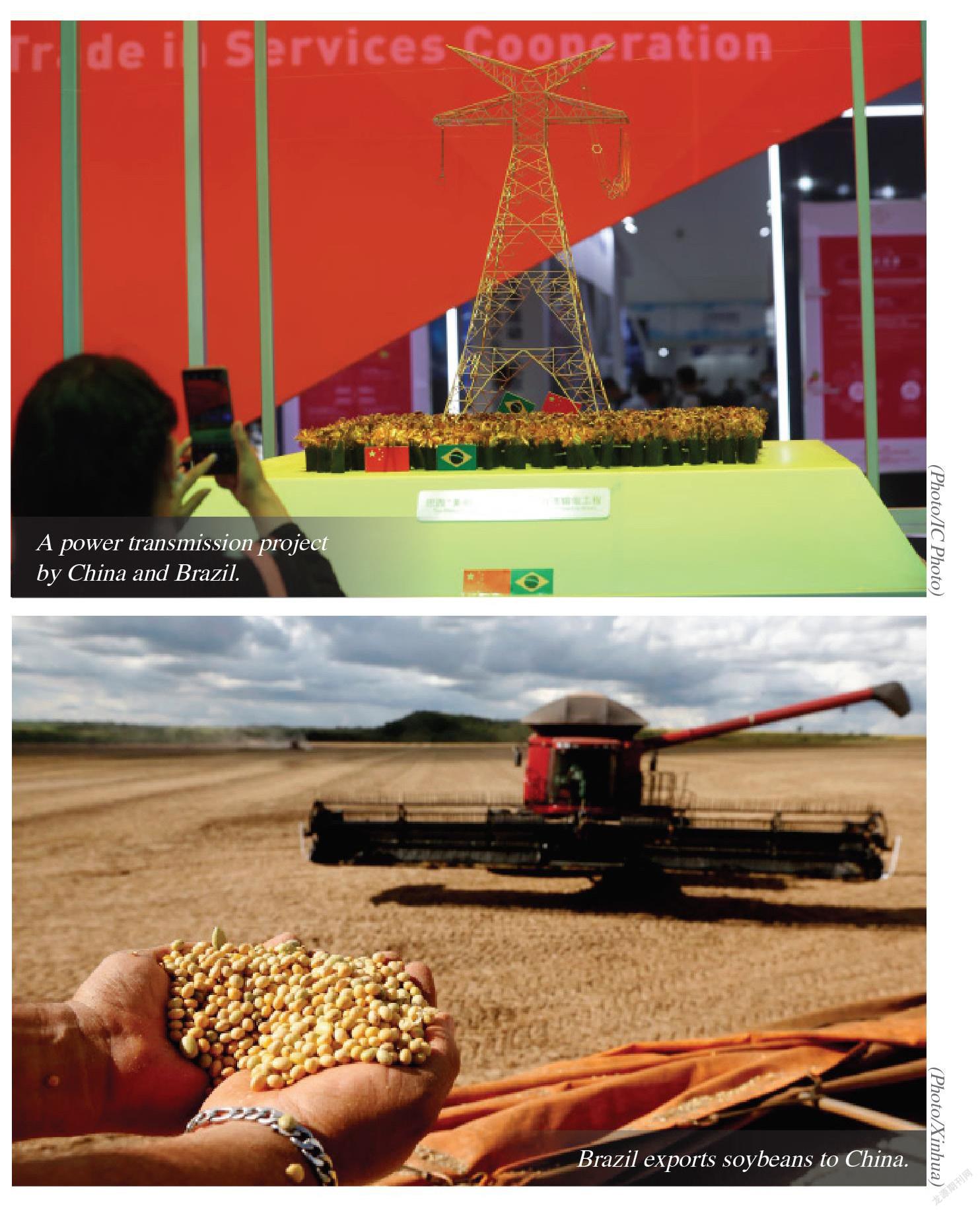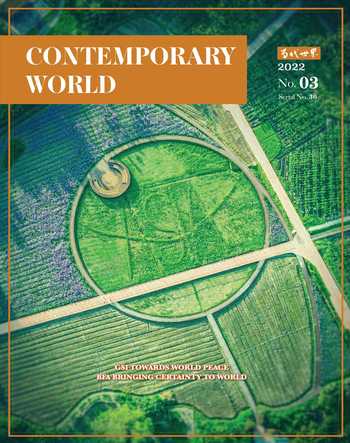BFA Bringing Certainty to the World
[Brazil] Alessandro Golombiewski Teixeira




As one of the most influential forum summits in the world today, the Boao Forum for Asia has become a high-level dialogue platform for Asia and the world to build consensus, expand cooperation and seek common development. It has become an international public product that is widely welcomed by the political, business, and academic communities, attracting the attention of the global public in the context of the world’s great changes. Over the past 21 years, the Boao Forum for Asia has enhanced exchanges and cooperation among Asian countries and between Asian countries and other regions of the world, promoting Asian economic integration in which the forum has direct responsibility in helping to discuss design and for sure implement trade agreements, and injecting more new energy into economic globalization. As a representative participating the forum, I have a strong feeling about that.
The Forum Shows the Influence of Asia
Amid great changes unseen in a century and the pandemic, the forum plays a more prominent role. As shown in the main topic “The World in COVID-19 & Beyond: Working Together for Global Development and Shared Future”,?the dialogue was centered on building a new vision of post-pandemic Asian development for the world. In the post-pandemic era, it is most urgent for all countries to accelerate economic recovery and growth and restore normal social order. Currently, most Asian countries are trying to find ways to rapidly get rid of the negative impact of the pandemic on their economies, especially the inflation increase, debt issues, and also the rise of unemployment and poverty.?As a multilateral dialogue platform based in Asia and open to the world, the Boao Forum for Asia fully respects the sovereignty of all countries, fully listens to their opinions, and strives to prove to the world that Asia is the most dynamic and promising region in the world today.
At the same time, the Boao Forum for Asia also provides the world with Asian solutions for global economic governance. In the face of great uncertainty in the evolution of the international political and economic landscape, strengthening and improving the global governance system is more important and urgent than ever before. To a certain extent, the pandemic has widened the “governance deficit” in global governance, leading to a significant increase in international conflicts and strife of interests, and even zero-sum thinking and the Cold War decoupling system were once rampant. The foundation of trust and cooperation between countries was eroded to a large extent.?The Boao Forum for Asia upholds the concept of a community with a shared future, discards the Cold War and zero-sum game mentality, and builds a platform for common development and mutually beneficial development. It has demonstrated the common will of Asian countries to respect differences, pursue commonality and work together for mutual benefit and build an Asian community with a shared future together.
Thanks to the strong and effective governing measures and appropriate relief policies, the Boao Forum for Asia shows the world a new vision of post-pandemic Asia’s development. The market generally expects that most Asian countries will return to their pre-pandemic output levels by the end of 2021. Through sincere exchanges and frank communication online and offline, many of Asia’s development problems are solved or are about to be solved. The “Boao Wisdom” surged on the forum, is not only in the fundamental interests of Asian people but also the common expectation of the international community.
In my view, as years go by the Forum will increase not only its regional importance but also its global relevance. This is a natural consequence of the Asia economic expansions. When the Forum started its operation, the Asia region represented 26% of the world GDP. Today it represents 47.4%, a huge increase in its economic participation. Also, China’s economy expanded. China was the 5th world economy at the beginning of the forum, and now it is the second largest economy in the world in terms of GDP (current prices).
China’s Initiative Offers New Thoughts
In recent years, the international society increasingly benefits from China’s initiatives on world issues. One of the biggest highlights of the annual conference is that Chinese President Xi Jinping put forward the Global Security Initiative for the first time, demonstrating China’s clear and firm attitude toward maintaining global security. Today, humanity has not yet emerged from the haze of the COVID-19 pandemic, and the crisis in Ukraine has followed. The world is facing new security risks. When traditional and non-traditional security issues are intertwined, the outlook of the global security situation is once again full of uncertainties. The Global Security Initiative “oppose[s] the pursuit of one’s own security at the cost of others’ security”, which distinctly opposes the expansion of military blocs to guarantee regional security. Through the Global Security Initiative, China clearly expresses its insistence and opposition - insisting on peaceful solutions through dialogue and consultation, not engaging in double standards, and opposing the abuse of unilateral sanctions and so-called long-arm jurisdiction.
In the face of intensifying geopolitical competition in the world and the increasing possibility of inter-state conflicts, China has proposed a Global Security Initiative to systematically elaborate solutions to world security issues. The concepts and principles advocated by China offer the possibility of solving related problems. The code of the success of the Asian Miracle in the past decades lies in regional cooperation. In the face of Cold War thinking and bloc politics that undermine Asian cooperation, Asia refuses to become a chessboard for big power games, and Asian countries are never pawns of big power confrontation. Asian countries need to build up the existing security cooperation mechanisms to jointly maintain peace and security.
Besides, Chinese President Xi Jinping also proposed the GDI, which is an initiative to support the development of developing countries, promote global economic recovery in the post-pandemic era and strengthen international development cooperation.
The GDI concept takes people as the most important element of development. In that sense, development is not a mere economic concept. It is a much broader concept that seeks for people’s development from multidimensional perspectives including all aspects of improving people’s livelihoods and protecting and promoting human rights through development. This means that this global initiative was created with the idea to be an international cooperative platform in which countries can help each other without the necessity to divide the world into “my friends” and “other friends” because development is not an exclusive but inclusive concept. Thus, sharing a common vision only unifies the world and does not divide the world. The objective of GDI is to build a global community of development with a shared future. When we see China taking the lead in completing the approval process of RCEP - the Regional Comprehensive Economic Partnership as the largest number of participating members that the world has ever seen in a trade agreement, we fully understand in practice part of the GDI concept.
So, the creation of multilateral cooperation platforms such as GDI and Belt and Road Initiative is the only way forward. We need to understand the challenges that humankind has to face and find out solutions that can only be tackled by a common and shared vision. The Belt and Road platform addresses problems such as infrastructure, investments, job creation, and sustainability among many others. These problems are crucial for our future, and if they are not tackled from a global joint perspective, they will be very difficult to address. A good example is our failure to deal with COVID-19. While countries try to address this situation in a granular approach, the virus still spreads and is fatal. We have already created a divided world between those that can be vaccinated and those who do not have access to vaccination. Through these multilateral platforms, China has shared more than 2.1 billion doses with more than 120 countries using the concepts of GDI and BRI as inclusive platforms.
Emerging Markets in Urgent Need to Solidarity
The multilateralism advocated by the Boao Forum for Asia is the right remedy for hegemonism and economic isolationism. This year’s Boao Forum for Asia Annual Conference added two new sections, “Interpreting China” and “One Belt, One Road” cooperation, highlighting China’s commitment to a win-win situation and welcoming all countries to share China’s reform. The panel has shown China’s inclusive attitude to sharing the dividends of China’s reform and riding on the fast train of China’s opening up.
In the face of the world’s multiple peace and security challenges, it is urgent for different countries to join hands to discuss sustainable solutions. In particular, the developing countries, which have been subjected to hegemonic sanctions and even bullying, should be united to deal with the crisis.
China and Brazil are important representatives of today’s emerging powers. The two countries are at the same time in an important interval of national development and rising international influence, and the international identities of both countries are facing a critical transformation. Since the beginning of the new century, China-Brazil relations have accelerated, driven by strong economic and trade ties as well as by South-South cooperation. In recent years, the cooperation between Brazil and China in the development, production, and vaccination of the COVID-19 has saved many Brazilian lives and made a great contribution to the world’s fight against the pandemic. As we enter the post-pandemic era, China’s strong market demand and world-leading technological achievements will help Brazil regain its momentum.
Meanwhile, as a major power in Latin America and an active participant in global governance, as well as an important strategic partner of China, Brazil should further play an important role in cooperation between Asia and Latin America to promote global governance. The diversity of interests and demands within Latin American countries is a real challenge, so the coordination between China and Brazil to drive cooperation between Asia and Latin America is crucial to the development of both regions. During the past three decades (1989-2019), the total trade volume between LAC and China has increased by nearly 200 times, with the expansion of both export and import.
Emerging market countries have their own limits to development growth, and these limits come from both the intense volatility brought about by the changing geopolitical environment and the restructuring of the world order, as well as internal economic growth woes. In the current context of power shift, no emerging market country is immune to the risk of economic volatility and downside and cyclical recession. In order to seek survival and prosperity under the changes of the world order restructuring, developing countries should seek consensus, strengthen cooperation, open up and promote multi-disciplinary and all-round exchanges, and reach a win-win situation.
More specifically in the case of Brazil-China cooperation, many new cooperation areas should be open such as green development, technology transfer and complementation, and digital economy. Brazil and China should understand they should build strategic cooperation that allows both countries to help their region to achieve development under the concept that President Xi has introduced in the GDI meaning improving people’s livelihood. That is a shared vision humankind needs.
——————————————
Alessandro Golombiewski Teixeira is the former Special Economic Adviser to the President of Brazil, and Professor of Public Policy at the School of Public Policy and Management, Tsinghua University

